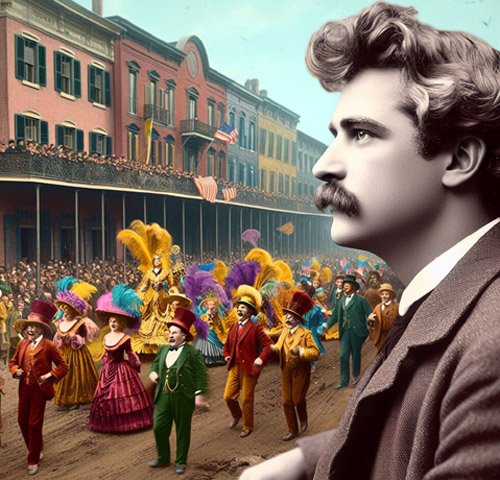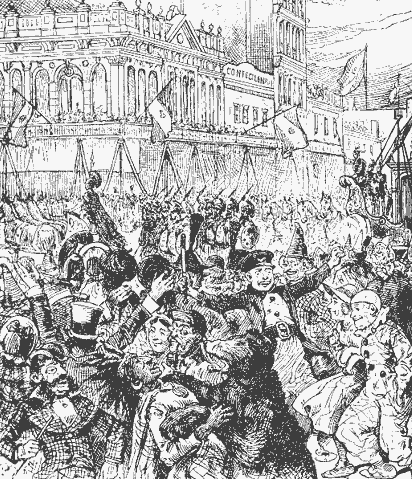

| It has been said that a Scotchman has not
seen the world until he has seen Edinburgh; and I think that I may say that
an American has not seen the United States until he has seen Mardi-Gras
in New Orleans. - Letter to Pamela Moffett, 9 and 11 March 1859 |
 AI image created by R. Kent Rasmussen |
|
Mardi-Gras is of course a relic of the French and Spanish occupation;
but I judge that the religious feature has been pretty well knocked out
of it now. Sir Walter has got the advantage of the gentlemen of the cowl
and rosary, and he will stay. His medieval business, supplemented by the
monsters and the oddities, and the pleasant creatures from fairy-land,
is finer to look at than the poor fantastic inventions and performances
of the reveling rabble of the priest's day, and serves quite as well,
perhaps, to emphasize the day and admonish men that the grace-line between
the worldly season and the holy one is reached. |
|
| This Mardi-Gras pageant was the exclusive
possession of New Orleans until recently. But now it has spread to Memphis
and St. Louis and Baltimore. It has probably reached its limit. It is a
thing which could hardly exist in the practical North; would certainly last
but a very brief time; as brief a time as it would last in London. For the
soul of it is the romantic, not the funny and the grotesque. Take away the
romantic mysteries, the kings and knights and big-sounding titles, and Mardi-Gras
would die, down there in the South. The very feature that keeps it alive
in the South--girly-girly romance--would kill it in the North or in London.
Puck and Punch, and the press universal, would fall upon it and make merciless
fun of it, and its first exhibition would be also its last. - Life on the Mississippi |
 Illustration from first edition of Life on the Mississippi |
Quotations | Newspaper Articles | Special Features | Links | Search